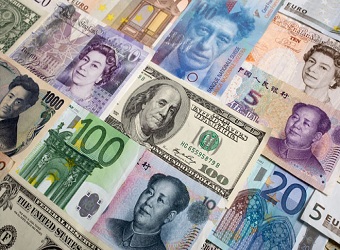The euro fell on Wednesday, with investors wary after European Central Bank officials ramped up efforts to talk down the currency, with arguably its most hawkish member hinting at a radical softening of monetary policy.
The single currency hit a three-week low on Tuesday after ECB governing council member and Bundesbank chief Jens Weidmann said negative interest rates were an option to temper euro strength. He added that quantitative easing was not out of the question to combat deflation.
The euro, which had reached a 2-1/2-year peak against the dollar in mid-March on fading expectations of more ECB easing, was trading just above those three-week lows on Wednesday.
|
Price |
Change |
%Change |
||
|
=USD |
80.01 |
0.03 |
0.04% |
|
|
EUR/USD |
1.3803 |
-0.0022 |
-0.16% |
|
|
AUD/USD |
0.9222 |
0.0059 |
0.64% |
|
|
JPY/USD |
0.9774 |
-0.0005 |
-0.05% |
|
|
CHFUSD |
1.1308 |
-0.0021 |
-0.19% |
|
|
GBP/USD |
1.6577 |
0.005 |
0.30% |
The ECB holds a policy meeting next week but before that traders will await euro zone “flash” inflation data on Monday.
Another drop in price pressures could bolster expectations that the ECB may have to act soon.
The fact that the Bundesbank was open to buying assets from banks to fight deflation marked an unprecedented softening of the German central bank’s strict stance on quantitative easing. That was enough to keep investors away from the euro for now.
The euro was trading lower for its second straight day at $1.38, not far from the three-week trough just above $1.37 hit on Tuesday. It was also lower against the yen at 141.25.
A growing number of officials have stepped up their rhetoric against a firmer euro as it lowers imported inflation and keeps the risk of deflation alive in the euro zone.
ECB Governing Council member Erkki Liikanen said on Monday the bank was keeping a close eye on the euro to see how the exchange rate affected inflation, while European Commission vice-president for industry Antonio Tajani said on Tuesday that at $1.40 the euro was too strong.
Slovakia’s central bank governor, Jozef Makuch, who also sits on the ECB board, said the currency should weaken by the end of the year.
Dollar Climbs
With the euro falling, the U.S. dollar index, which measures the dollar against six major currencies, was up about 0.15 percent above 80.05.
Analysts said as diverging monetary policy outlooks become a dominant theme in currency markets, the dollar index could outperform in the second quarter. The U.S. two-year bond yield premium over Germany hit a 15-month high on Wednesday.
Westpac’s Richard Franulovich said in a note that the dollar index could rise towards 82 in the second quarter.
Against the yen, the dollar was firmer at 102.35. The yen has been hemmed in a tight range between 102.01 and 102.65, with traders attributing its inertia to dwindling participation from Japanese investors, many of whom may have closed their books before the end of the Japanese fiscal year this month.
The Australian dollar traded above $0.92, a four-month high, underpinned by speculation that China will unveil stimulus measures to re-energize its slowing economy. The Aussie is used as a proxy for exposure to growth cycles in China, Australia’s key export market.
|
Price |
Change |
%Change |
||
|
EUR/USD |
1.3803 |
-0.0022 |
-0.16% |
|
|
=USD |
80.01 |
0.03 |
0.04% |
|
|
JPY/USD |
0.9774 |
-0.0005 |
-0.05% |
|
|
USD/AUD |
1.084 |
-0.0068 |
-0.62% |
|
|
USD INDEX |
80.00 |
0.06 |
0.08% |
|
|
JPY/USD |
0.9774 |
-0.0005 |
-0.05% |
|
|
.AJW |
92.25 |
0.78 |
0.85% |
|
|
=EUR |
111.43 |
-0.14 |
-0.13% |
|
|
EUR/USD |
1.3803 |
-0.0022 |
-0.16% |
|
|
USD/JPY |
102.25 |
-0.01 |
-0.01% |
|
|
AUD/USD |
0.9222 |
0.0059 |
0.64% |
Source: Reuters


